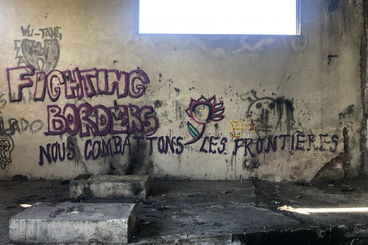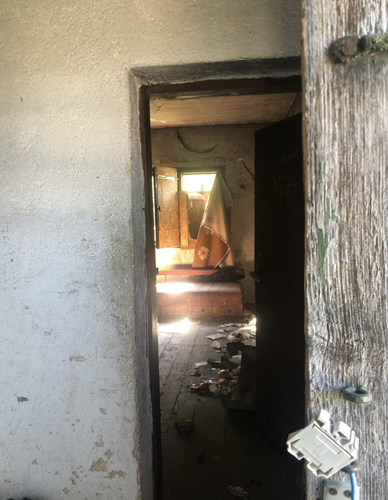
By Roberta Gentilli

In June 2024, I continued my fieldwork in the city of Bihać, located in Bosnia-Herzegovina. During this period, my primary focus was conducting interviews with people-on-the-move, as well as with activists and staff members working for various NGOs operating in the region. The overarching goal of this fieldwork was to gain a deeper understanding of the role of the so-called "game" — the term commonly used by migrants to describe attempts to cross borders — and how the informal mobility of migrants evolves in the shifting context of both formal and informal camps.
I dedicated particular attention to examining how informal spaces, such as makeshift camps, abandoned buildings, and the so-called "jungle" continue to play a crucial role in the execution of the “game,” even years after some of these spaces were officially evicted. These areas are significant sites in migration dynamics, highlighting the persistence of informal networks and spaces within the broader context of migration.
In addition to conducting semi-structured interviews, I engaged in participant observation in key locations around Bihać, including the two main official camps and the central bus station, which is frequented by migrants during their journeys. Furthermore, I collaborated with local organizations actively supporting people-on-the-move.
Beyond Bihać, I also spent several days conducting fieldwork in the nearby city of Velika Kladuša, which is a critical location for migrants attempting to cross the Croatian border as part of the "game." My work there included informal conversations with residents, who often have unique perspectives on migration in the area, as well as with activists engaged in supporting migrants.
While in Velika Kladuša, I visited several key locations and surrounding villages that serve as focal points for people-on-the-move and their journey. These visits included informal conversations with migrants who had returned to Bosnia-Herzegovina after experiencing violent pushbacks from Croatia. These interactions highlighted the constant violation of human rights at the borders of the European Union, underscoring the severe consequences of border externalization and migration policies.
I also revisited several informal camps that were active in previous years in Velika Kladuša. Although these sites are largely no longer in use, they continue to hold significance as historical landmarks of migration in the region.
This extended fieldwork allowed me to build upon my previous research, enriching my perspective on the evolving migration landscape in the Una-Sana Canton, while deepening my understanding of the complex interplay between local communities, migrants, and border control policies.